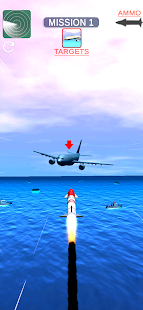

The 10 songs in Boom Boom Rocket are all updated electronic covers of classical pieces with witty names such as "William Tell Overload," "1812 Overdrive," and "Tail Light Sonata." These updated takes on classical music are pretty cheesy, though they're exactly the sort of tracks you'd expect to hear at a fireworks show. The quality of the music is a huge part of any rhythm game.

Considering that you're still just competing for score, cutting the screen in half to allow for another player doesn't add anything to the game. Both regular and endurance games can be played with a second player, provided the second player is sitting right next to you. The number of beats per minute is displayed at the bottom of the screen, and after about two or three times through, most of the songs are played so fast that you'll hardly be able to keep up. You can also play in endurance mode, which loops the song over and over again, constantly speeding it up as you play. At the end of the song, your performance is totaled up, and you're given a grade, and the online leaderboard, which shows you your combined score across all 10 songs as well as individual scores for each song, is displayed. When you get a long-enough combo going, the timing bar starts to twinkle, indicating that you can tap a trigger and activate a bonus run, which doubles your scoring multiplier for a brief period of time. The closer to the beat you are, the more points you get, and stringing together proper presses builds a combo and a score multiplier. The icons can be shaped like arrows or buttons, depending on your preference, and you need to hit the appropriate button on the controller when the icon crosses the line.

As in most rhythm games, icons (in this case, launching fireworks), move up toward a line. There are 10 songs to play in Boom Boom Rocket and three difficulty settings.

That cuts both ways: The simplistic nature of Boom Boom Rocket makes it easy to pick up and enjoy in brief chunks, but it's also roughly like playing Dance Dance Revolution with the controller instead of a dance mat, which, unsurprisingly, isn't too much fun.īy law, all coverage of Boom Boom Rocket is required to have at least one reference to Fantavision, even though the two games aren't really alike. Boom Boom Rocket is, in a lot of ways, a throwback to simpler times. Nowadays, we're awash in plastic guitars, dance mats, microphones, congas, and all sorts of other crazy, expensive equipment. In the early days of the rhythm genre, there were a lot of games that simply used the controller.


 0 kommentar(er)
0 kommentar(er)
